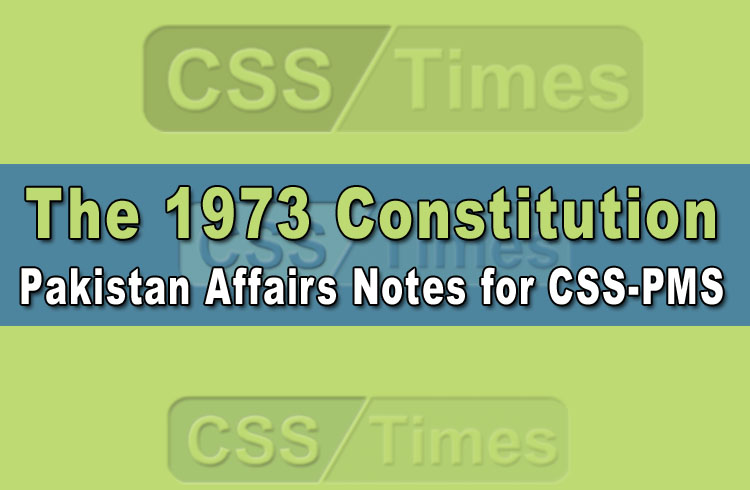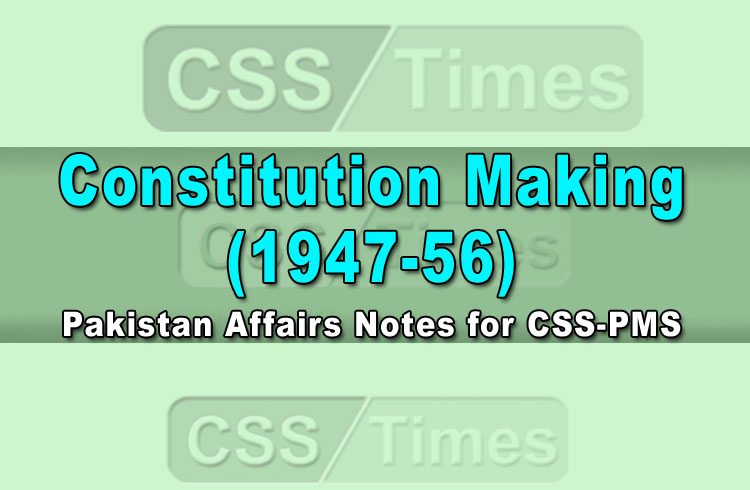The 1973 Constitution | Pakistan Affairs Notes for CSS-PMS
1. Background
2. Constitution Making
3. Features
1. Background
Abrogation of the 1962 Constitution on March 25, 1969 led to second martial law in the country. Yahya Khan handed over power to Zulfikar Ali Bhutto on December 20, 1971 after the first general elections. But martial law continued and there was no constitution.
National Assembly approved an Interim Constitution, which was enforced on April 21, 1972.
2: Constitution Making
Constitutional Committee comprising National Assembly (NA) members from all parties was set up in April 1972. Law Minister was the Chairman of this Committee.
All parties agreed on the future political system in October 1972. The Committee reported on December 31, 1972. After long deliberations and compromises final draft was approved unanimously on April 10, 1973. The new Constitution was enforced on August 14, 1973.
The Constitution functioned since then with two gaps. It remained operational during following periods:

